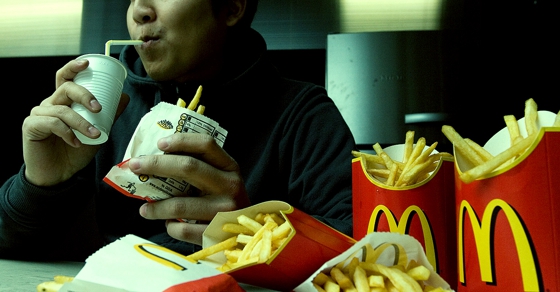
The concept of a “Willpower Bank” is one frequently repeated by diet authors.
Dave Asprey, a nutritionist and founder of The Bulletproof Executive, wrote in a Thanksgiving-themed article:
Researchers have finally proven that we only have so much willpower each day. You can run out of willpower if you waste it saying no to your favorite foods. That means you are destined to fail if you try to simply will yourself away from the food. When you run out of energy, you will cave-in to Aunt Mary’s pumpkin pie.
On the Whole 30 diet website, they have a whole article on the subject, writing:
Researchers agree that your willpower “bank” (the amount of energy available in the brain to exercise self-regulation and resist temptation) is a limited resource—like having $1 in a bank account. Each time you exert willpower, you withdraw a penny (or a few). When the account is down to $0, well… you know the kind of decisions you make then.
But this concept of a willpower bank applies to finances as well, especially when it comes to saving, budgeting and investing.
Will to Save
Saving can be hard for some people. Forcing yourself, every month, to consciously defer some of your hard earned cash may be needlessly spending down your willpower bank. That’s why we recommend that you automate your savings.
If you have a paycheck that is direct deposited, set up at your bank an automatic transfer of funds to your brokerage account to occur after your paycheck clears. Then, you’ll have automated your savings. Each month, your employer will deposit money into your bank account and your back account will transfer money to your savings. No willpower necessary!
Will to Budget
Living within your means may also be a difficult process. Walking away from tempting purchases is particularly difficult, especially for those who are constant shoppers.
One way to conserve your willpower is to make it a policy to always take a picture of the item you want to buy with your phone, save it to Amazon’s universal wishlist, or pin it to a Pinterest board. Then, wait a week and review the items you’ve saved to see if you still want them. Sometimes though, just taking ownership of an image of the object can feel as good as owning the object and ease the pains of wanting to purchase it.
Another option is to show potential purchases to a good friend or your spouse who is a frugal and savvy shopper. Sometimes sharing the item is half of the reason you want to buy it and showing it off to your friend will be rewarding and you won’t feel the need to buy it any more.
Lastly though, create a budget so that you don’t have to have willpower fights over the small stuff. If your expenditure is within the budget and the budget puts you within your means, you don’t have to fight yourself. You can pick your battles and spend your willpower on the big purchases.
Will to Invest
Some people are afraid of investing and it takes willpower for them to remain in the markets. If you’re afraid because you don’t like seeing the account value change, don’t look at it. Ignore it. Pay a fiduciary to watch and rebalance it.
The easiest way to save up all your willpower when it comes to investing is to invest and then go live life. That’s why David Marotta created the “Gone Fishing Portfolio.” You invest your savings in these stocks and then you go live life, you go fishing. Use your willpower once, invest in those funds and then forget about it.
Photo used here under Flickr Creative Commons.